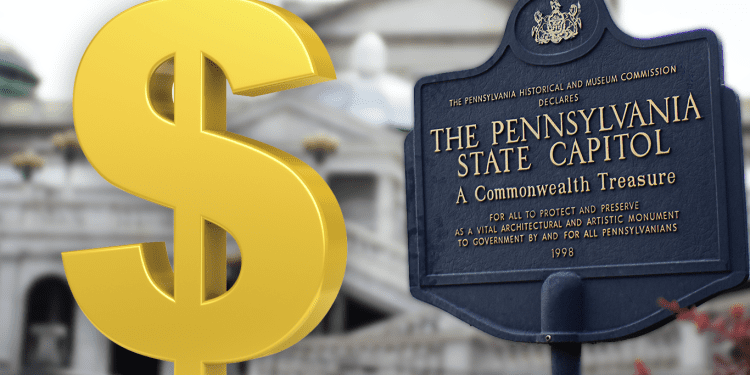Pennsylvania is the first state to say that NFTs are subject to sales tax. Without further context, the state only added non-fungible tokens to its annual sales tax matrix. While this may seem reasonable to consider the sale of NFTs as an actual transaction in the public eye, it does raise concerns, including the lack of information about the customer’s location and the legitimate authority of the NFT dealer.
Even worse, a PA Department of Revenue representative said they might need to go back to six years to update the state’s tax laws on digital goods so it covers NFTs. Because of Pennsylvania’s influence, other states may follow suit, although they may continue with the existing law on digital goods as if NFTs were already a part of the list in the first place. However, whether the state will need to backtrack the digital sales taxes statute or not will depend on Washington’s proposed NFT regulations.
The Infrastructure Act
The states will rely on the federal income tax. Last year, the US Senate passed the infrastructure bill that would affect “any person who (for consideration) is responsible for regularly providing any service effectuating transfers of digital assets.” This allows them to determine where the customer resides for tax purposes.
NFT sellers will need to obtain information to identify customers. For that to happen, they must comply with the infrastructure act. When it does push through, the states will rely on this information to know the locations between the transaction and to determine when the sale is taxable.
The Treasury Department continues to work on solidifying more regulations regarding digital assets. These regulations may take effect by January 1, 2023, or soon after. Since NFTs are already considered digital assets, the tokens would most likely become eligible for taxation.
Washington’s Decision
The Department of Revenue in Washington is already preparing to propose regulations on sales tax consequences of NFTs. Once WA publishes these laws, other states will follow suit. If it does begin, it will happen fast. After all, the government needs to find a way to make sure the purchases are eligible to the right buyers, such as the recent $300K purchase of a Dolce & Gabbana tiara NFT exclusively for the Metaverse.
After all, tax agencies constantly kept sniffing on NFT retailers’ activities online.
Because the issue will likely focus on routine sales tax audits, the retailers will be the most affected individuals rather than the company that sells NFTs. Until Pennsylvania, no state has proposed guidance on whether NFTs are eligible for sales tax. Yet, that does not mean NFT traders are excused for back taxes if the law is broad enough to cover NFT transactions.
Risks
Since buyers use cryptocurrency to purchase NFTs, sellers don’t need to provide the billing address. The problem here would be if an audit happens and the seller doesn’t know the location of the buyer, the tax agency would presume that the tax should be placed on the seller’s site instead. That dilemma alone is a headache for Washington because that would mean the sellers may also need to provide a form of certification from the customer to declare which state they live in. Naturally, most buyers will refuse this proposal.
After all, that would contrast the purpose of purchasing in the blockchain: to freely buy and sell without the strict authority of the state. Considering that Congress found ways to tax mobile phone services under the Mobile Telecommunications Sourcing Act of 2000, they would most likely find loopholes that they can exploit to ensure sales taxes for NFT transactions and that the payments go into the right hands.
NFTs Could Still Be Excluded
However, with all the government’s efforts, NFTs may still not undergo sales tax on digital goods. After all, many states such as Florida, New York, California, Georgia, and Illinois do not consider music and audio-visual apparatus taxable. So if these aren’t taxable, why should NFTs be under sales tax?
Additionally, several states only tax downloaded items that do not come as NFTs on the blockchain. Yet, this condition may change given how much mainstream popularity non-fungible tokens have gained since last year. It is essential to understand that the issue affects only the digital sale of an NFT, not the sale of an NFT that comes with a physical purchase or an NFT that a buyer can replace for material goods.














